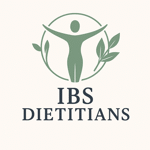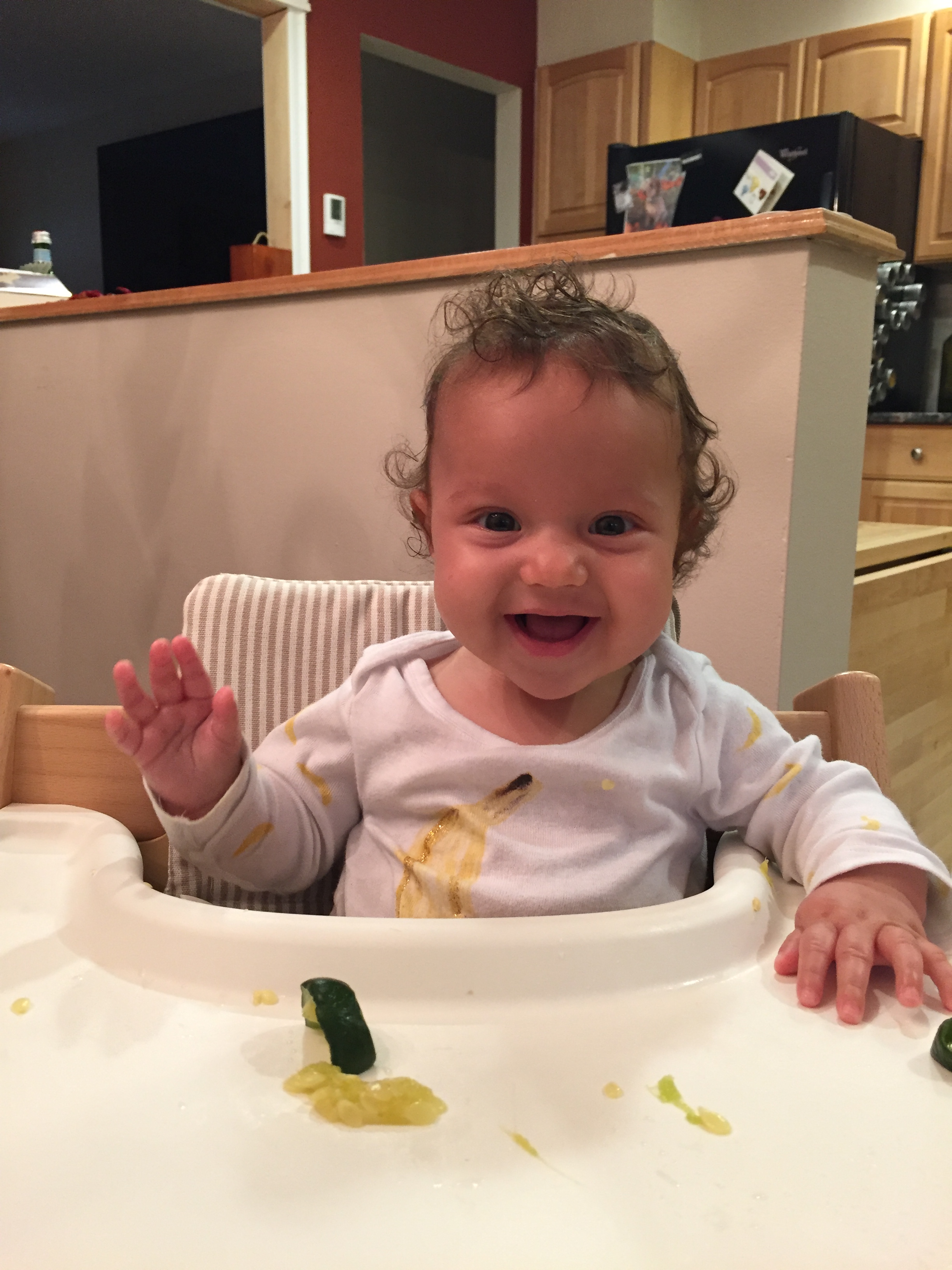A few tips on feeding babies food…
- Don't! Let them feed themselves! When starting babies on foods other than breastmilk or formula, they have the ability to feed themselves. It does get messy, and it takes a lot of patience, but the reward is great. Babies learn to develop their motor skills, they are more likely to listen to their own body's fullness cues (without outside pressure to finish their food), and parents have the time to focus on feeding themselves at meal time as well. So if you are comfortable enough to voyage into the realm of baby-led feeding, be sure to do thorough research beforehand and get trained in infant choking to be safe (although this should be done regardless of the feeding strategy). Check out the book Born To Eat and website Baby Led Weaning.
- Sticking to pureed foods? Encourage your baby to play with their food. You will need to spoon-feed them to get in more food, but they should get comfortable with getting their hands dirty and feeding themselves as much as possible.
- Latest research recommends babies begin to eat foods after 6 months of age. Previous guidelines were 4-6 months of age. Babies should at least be able to sit up on their own. I won't go into further detail here, but check with the pediatrician if you're not sure if the little one is ready.
- Explore different flavors! Typical American “baby food” is bland, cooked to death, and mushy. It doesn't need to be. Babies can eat the same seasonings as us, curry, cinnamon, basil, you name it!
- Introduce peanuts early on to decrease the risk of developing an allergy. If your baby is at high-risk for having an allergy, consult with the pediatrician or an allergist beforehand. You can do a trial of the food in the doctor's office to be on the safe side.
- Eating, at this age, is all about discovery. Babies don't dislike foods, they are just exploring them. Their curiosity & degree of hunger are going to vary, that does not mean they do not like a food. Allow them to play with their food to discover the textures, smells, and tastes each food has to offer.
- Cereals fortified with iron can be important if your baby doesn't have other iron sources in their diet (which is more than likely for most babies). I mix fortified oatmeal with other foods such as soothes and fruits to change it up. Rice cereal can be good too, although some are concerned with arsenic content of rice. It is best to vary foods.
- Supplements:
- Vitamin D is also commonly needed, generally at a dose of 400 IU/day although if breastfeeding and the mom is supplementing with 6,400 IU vitamin D/day, that is sufficient.
- EPA/DHA (the healthy brain fats) are good for baby as well as mom. So again, if breastfeeding, mom should be getting adequate fats from good fish oils. My little Antonia loves salmon and sardines, so when I fall behind on my intake, she gets fish to eat 🙂
This is Antonia after trying her first food–zucchini!

Marina Bedrossian is a Northport, NY dietitian nutritionist who helps people with holistic nutrition solutions and food sensitivities. Visit this page to schedule an appointment and don’t forget to join the private Facebook group “Ingredients For Healthy Families” more information here.

